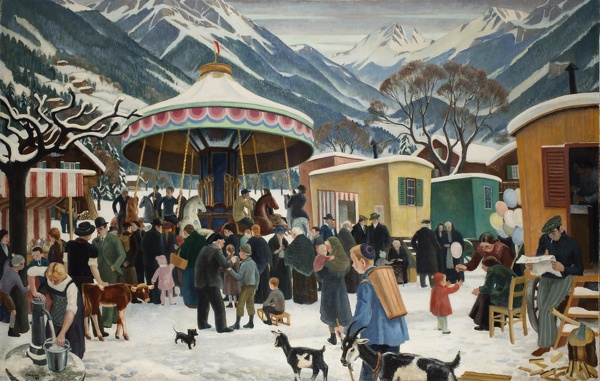In wartime wry humour and nostalgia, particularly in the popular arts – song, film, theatre, and painting – play an important part in combating the enemy and keeping up morale on the home front. Documentary art is for posterity, but for the serviceman or woman on leave something that reminds them of happier times is required. During the dark days of WW2, if you were out for a carefree evening posterity was hardly a priority, especially as you were conscious that there could be no tomorrow. Those on leave and those at home needed relief from the grim realities of the everyday state of affairs. Nostalgia, especially the recall of moments of transient bliss, is often evoked through the senses, sight, sound and smell – the whiff of a particular scent, the half-heard notes of a familiar tune, the sight of a particular image. In times of danger, rose-tinted spectacles have the ability to make the recollection of such transient pleasures more special than they had ever been in reality.
As an artist Allinson was ideally placed to summon up the settings for such idyllic memories; he was not only familiar with the English countryside, but in the 1920s he had spent a considerable time in the Alps and skied for England, before forsaking the frozen north for what he described as ‘the quintessential loveliness’ of Mallorca.
The four seasons – Spring in Mallorca, Summer on the South Coast, Autumn in the Cotswolds and Winter in the Alps – were offered as a gift by Adrian Allinson to the Stroud Central School for Girls in December 1944.
We are grateful to Stroud Local History Society for their assistance.











